- Home
- Robin Cook
Pandemic Page 8
Pandemic Read online
Page 8
Back in his office, he grabbed his leather bomber jacket, which he wore on his bike rides to and from work at that time of the year. But before he descended to the morgue level to get the bike, he put in a call to Bart Arnold.
“I don’t suppose you’ve heard anything,” Jack said when he had the man on the line.
“Nothing yet,” Bart said. “But we are expecting something imminently. This is the time of day people are expected to arrive home from work, or from wherever the day took them. I’m confident we’ll be hearing in the next hour or so. Have you heard anything from Virology?”
“Not a word,” Jack said. “Listen, be sure to let the evening and the night MLI team know that I would like a call the moment an ID is made. Also, I definitely want to be notified if there is another similar death, wherever it might take place. It doesn’t have to be on a subway car. It just has to be a sudden respiratory death or one from a known case of influenza.”
“I understand completely,” Bart said. “I’ll make absolutely sure everyone knows.”
After hanging up, Jack kept his hand resting on his phone as he debated calling Aretha Jefferson. Ultimately, he decided against it. He didn’t want to disturb her when she might be in the middle of doing the tests he wanted. More important, she’d promised to call him as soon as she had any results. Instead, he took out his mobile and changed the ringtone to Alarm so he’d be sure to hear it from deep within his jacket pocket while on the bike.
6
MONDAY, 6:20 P.M.
By far the best part of Jack’s day was the ride home on his Trek road bike. It was the lightest and best-designed bike he’d ever had, and he could easily get his speed up to more than twenty miles per hour. Especially when there was traffic, which there always was in New York City in the late afternoon, he was much faster than any motor vehicle. From the 520 OCME building he could make it all the way up to the southeast corner of Central Park in less than twenty minutes, just as he did that evening.
The Central Park portion of his ride was always the pinnacle. Since the park was crowded with numerous homeward-bound pedestrians filling the walkways, Jack had to stay on the East Drive all the way around until it started heading south and changed its name to West Drive. With no motor traffic allowed on the road, it was a pleasant and safe route. There were lots of other bike riders, joggers, and in-line skaters. Jack enjoyed racing with a few of the other, more serious bikers. At the very end of his journey he allowed himself to ride on a short section of sidewalk, even though he knew it was verboten. The sidewalk brought him out onto Central Park West right at the corner of his block, West 106th Street.
By the time Jack got to his house, night had completely fallen. Across the street in the small neighborhood park, the floodlights he’d paid to have installed were ablaze and a basketball game was already under way. There were also still quite a few children in the sandboxes and on the swings. The park was a big draw.
Jack cycled over to the chain-link fence that surrounded the park and leaned against it. With a bit of effort, he was able to make out who was playing. His two closest basketball buddies, Warren Wilson and Flash Thomas, were nowhere to be seen. Jack wasn’t surprised. Like him, they didn’t usually appear until after seven because of work responsibilities. Both were employed by an African American–owned and –operated moving company. Jack wondered if they would show up tonight. With their jobs, it was hit or miss. If he knew for sure they would appear, Jack thought about trying to get out there himself. He could use a run, as he’d mentioned to the virologist, although he felt a little guilty about not spending the time with the children, particularly given the new situation with Emma.
After re-crossing the street, Jack carried his bike up the stoop and stored it in the utility room that he’d designed specifically for bikes and other sports equipment, just inside the front door. As Jack hung his bike up by the front tire, he noticed several of JJ’s lacrosse sticks sprawled on the floor. He picked them up and hung them on their designated hooks. Jack loved to take JJ into Central Park to toss a lacrosse ball back and forth. JJ had picked up the knack with surprising ease.
Jack and Laurie had renovated the town house soon after they married. They had taken the top three floors for their private residence and designed six rental units for the other three. It had turned out to be a perfect setup, as they had plenty of room, and the income from the other apartments covered most of the expenses, even some of the mortgage. The trick was getting good tenants. Currently things were going swimmingly in that realm.
As Jack mounted the stairs he wondered what he would be facing. Unfortunately, he had a pretty good idea, but tried not to dwell on it. Once inside the apartment, he stopped to listen. He could hear several televisions. The closest was coming from behind the closed door to the guest room some twenty feet away. He could hear it was tuned to the evening news, and it was not a positive sign, as it indicated that Dorothy Montgomery, Laurie’s mother, was still in residence. That morning Jack had taken the risk of suggesting to her that maybe she’d enjoy spending a relaxing week or so back at her Park Avenue abode. Laurie had been in the shower at the time, and the suggestion wasn’t something he had discussed with her in advance. The idea had just occurred to him out of the blue as he was getting ready to leave while listening to Dorothy criticize the breakfast Caitlin had made for the children. The longer Dorothy had stayed, and it was now going on a week, the more apparent it had become that she felt Caitlin didn’t do anything right. Jack certainly hadn’t counted on Dorothy taking him up on his suggestion, and now that he heard the guest room TV he was sure she hadn’t.
The second TV was obviously coming from the kitchen/family room on the floor above. Jack mounted the stairs and found Caitlin, JJ, and Emma. It was a deceptively pleasant domestic scene. Caitlin was cleaning up from having made the kids’ dinner. JJ was watching cartoons, and Emma was in her playpen. Jack said hello to Caitlin, who merely rolled her eyes in response when he asked whether everything was copacetic. Jack then high-fived JJ before turning his attention to Emma.
Emma was sitting in the center of the playpen. She did not make eye contact with Jack, even though Jack tried to position himself in her line of vision. Nor was she making any noise whatsoever, even though three or four months ago she would have been babbling incessantly. More disturbing still, she was rolling her head in her newly developed repetitive fashion. In the playpen was a collection of cute beanbag toys in the form of African animals, including a hippo, an elephant, a lion, a buffalo, a giraffe, a rhino, a gnu, and even a crocodile. Curiously, as she had done in the past, she had carefully arranged them in a straight line, nose to tail.
Reaching into the playpen, Jack stroked her arm and then her head in hopes of eliciting some response. There was none. For the next five minutes he just watched her. The entire time she ignored him and merely continued to roll her head silently. Finally, Jack reached again into the playpen and took the rhino out of its position, moving it half a foot to the side. Since he had done something similar in the past, he knew what to expect. Without a sound or any apparent emotion, Emma picked up the rhino beanbag and simply returned it to its position in line. Then she went back to her rhythmic head rolling.
What is going on in your little brain? Jack silently wondered. As a medical student, he’d studied embryology and neuroanatomy. He knew something about the process of brain development. But looking at his own daughter, he realized dejectedly how little was actually known about the process. All at once he was consumed by the same feeling he’d had when JJ had been diagnosed with a brain tumor. It was a feeling of utter helplessness.
Struggling against his own depressive thoughts, Jack looked up at JJ. Seeing the boy’s face and appreciating the intensity he was displaying while watching the cartoon on TV helped Jack regain some sense of composure. When JJ’s face suddenly lit up with laughter, Jack found himself smiling. Purposefully, he avoided looking back at Emma. Inste
ad, he straightened and walked over to JJ. Grabbing a chair, he pulled it over to the table where JJ was sitting. He sat down and gazed at his son.
After a few minutes JJ became aware of his father’s attention and looked up at him questioningly. “What’s wrong, Dad?” JJ asked when he saw his father’s expression. JJ’s face had clouded over with the suddenness of a summer storm. This swift reaction made Jack realize how much he was unwittingly reflecting his response to Emma’s lack of reaction. Jack’s heart melted, and he reached out and enveloped his son in an appreciative hug.
“Stop it, Dad!” JJ said, pushing Jack away. “I’m watching Curious George. What’s with you?”
Jack sat back, suppressing a burst of affectionate laughter at his son’s disdain. It was so wonderfully and reassuringly typical and in such sharp contrast with Emma’s behavior. Although he continued to watch JJ out of the corner of his eye, he gave some attention to the Curious George cartoon. His intention was to get into an ethical discussion about whatever issue the current cartoon was about. Jack had watched a number of them with JJ, and they had stimulated some fun conversations in the past. Unfortunately, it was not to be. Dorothy came up the stairs.
On previous days, Dorothy had always followed the network news with PBS NewsHour. On this evening it seemed that the network news had sufficed. She said a pleasant hello to Jack and said that she had heard him come in. She asked for Laurie. Jack told her that her daughter was working late and would be home shortly. Her response was to say that she would never understand why her daughter had chosen to take on the responsibility of being chief, much less become a medical examiner in the first place, not with so many other, much more acceptable specialties available.
Dorothy was a tall, thin, and intense woman with small, delicate features. Thanks to several facelifts in her seventies, her skin was stretched tightly over her high cheekbones. Her silver hair was so carefully coiffed with hairspray that it looked more like a helmet than a bouffant. Even in the face of a stiff breeze, nothing moved. She’d been married to Sheldon Montgomery, a highly successful Park Avenue cardiac surgeon, since she’d graduated from Vassar College. As such, she had been a fixture in New York City society and had been a prodigious fund-raiser for numerous medical charities. For a number of reasons, including a keen intelligence, she was a highly opinionated woman who was accustomed to getting her way.
“JJ! What did we decide about those cartoons?” Dorothy asked. Her voice was high-pitched and penetrating.
“I had to turn them off at seven.”
“Well?” Dorothy questioned rhetorically.
Dutifully, JJ slid off his seat, using the remote to turn off the TV in the process.
“And what did you agree to do after the TV was turned off?”
“Play with Emma,” JJ said.
“Good boy,” Dorothy said. She took a chair and sat at the table with Jack. She was dressed in a long, dark robe clasped high on the neck, which reminded Jack of what movie stars wore in old 1930s movies. On her feet were equally dark mules, each with a tuft of white fur on the toes.
Jack watched with awe and surprise as JJ climbed over the playpen railing. What surprised him was that Emma reacted. It wasn’t overwhelming, but she definitely was aware of JJ’s presence, in contrast to when Jack was stroking her. He watched JJ move the beanbag animals into various different gatherings while maintaining an uninterrupted monologue. Emma didn’t answer vocally or look at him, but she was engaged on some level despite continuing her head rolling. Each time JJ indicated he was finished, she would proceed to return the beanbags to her original line, with each animal in its original position.
“It’s important for her to interact,” Dorothy said, as if Jack needed to be told.
For the next fifteen minutes the three adults watched the children. Caitlin had come to the table after finishing her cleanup duties. Jack was content and even allowed himself to be mildly encouraged. But the tranquility didn’t last, as Dorothy had other ideas.
“I managed to get ahold of an old friend of ours today, Dr. Hermann Cross,” Dorothy said innocently enough. “Have you heard of him?”
“I don’t think I have,” Jack said. His guard went up. Whenever Dorothy started a conversation with a question, it invariably went downhill.
“I’m surprised,” Dorothy said. “He’s a very famous and knowledgeable doctor who has written a lot of books. He’s CEO of a large hospital corporation and very wealthy. He was in Sheldon’s medical school class. Significantly, he knows a thing or two about autism.”
“Oh,” Jack said noncommittally. He’d yet to have a civil conversation with Dorothy about autism. From downstairs he heard the apartment door close. He felt a bit of relief. Laurie was home.
“I called him, and he was nice enough to take my call, as busy as he is,” Dorothy continued. “I asked him specifically his opinion about autism and the MMR vaccine. Do you want to know what he said?”
“Probably not.” Now he was sure he didn’t want to have this conversation.
“Now, that might be the most unenlightened comment I have heard in a long time,” Dorothy said derisively.
“Thank you for the compliment,” Jack said. “But you and I have already had this conversation about the MMR vaccine and its totally debunked association with autism.”
“Not according to Dr. Cross, I’ll have you know,” Dorothy asserted. “He thinks there’s a definite association and did not have his kids vaccinated. You just don’t want to face facts and accept responsibility.”
“Is this Dr. Cross a medical specialist of some sort?” Jack asked. He couldn’t believe that a doctor could still be laboring under such a misconception, considering all the information that had been in the medical journals about the issue.
“Of course he’s a specialist,” Dorothy said. “He trained here at Columbia in psychiatry, and psychiatrists are well versed in the issue of autism.”
“Well, apparently not this psychiatrist. Clearly, he’s a businessman rather than a doctor, and I hope, for his investors’ sake, he is a better businessman than doctor. If he’s still laboring under the misconception about vaccines causing autism, I’d have to say that he’s a miserable doctor.”
“How dare you say such a thing,” Dorothy sputtered.
“Hello, everyone,” Laurie called out as she came up the stairs. “Hi, Mom! Hi, Jack! Hi, Caitlin!” She went directly over to the playpen and said hello to the children. For the moment they both ignored her as JJ arranged the beanbag animals into a small pyramid.
“JJ, I’m so proud of you for playing with your sister,” Laurie said. She watched as Emma rearranged the animals back to her liking. “Was this your idea all by yourself?”
“No, Grandma made me,” JJ admitted. “She said I couldn’t watch cartoons unless I agreed to play with Emma.”
“Well, I’m glad you listened,” Laurie said with a laugh. She tousled JJ’s blond hair, briefly rubbed Emma’s back, then turned her attention to her mother and Jack, who were staring darts at each other.
“Jack, dear. Could I have a word with you?” Laurie said with a forced smile.
Jack stood up, and without answering followed Laurie down the hall and into their shared study. It had two big windows facing 106th Street. He glanced out and saw that the crowd had significantly increased on the basketball court.
Turning back into the room, Jack could tell Laurie’s demeanor had changed from her initial apparent cheerfulness. She was now livid. “How dare you be disrespectful to my mother in our house. After the day that I’ve had, I have to come home to behavior like this? I truly don’t understand. What do you gain by baiting her like you were doing when I came up the stairs? Hermann Cross is one of my parents’ oldest and dearest friends.”
“I think you misread who was baiting whom,” Jack snapped back.
“Enough!” Laurie threw her hands up in the air in
exasperation. “She’s an eighty-three-year-old woman struggling to cope with her only granddaughter recently being diagnosed with autism. What do you expect?”
“I expect peace in my own house. I might not be eighty-three, but I’m struggling myself and she is not helping.”
“Oh, give me strength!” Laurie said, raising her eyes skyward.
“Your mother is out of control,” Jack said. “And I am not the only one who thinks this. Caitlin is fit to be tied as well. She even told me that she’s thinking of leaving. I don’t need to tell you where we would be if that were to happen.”
“She’s never said anything to me,” Laurie said.
“Of course not,” Jack said. “She’s afraid to say anything.”
“I’ll talk with her,” Laurie said.
“It would be better if you talked with your mother. Even if she is having trouble adjusting to what’s going on, she shouldn’t be camped out here indefinitely like this. To be truthful, she’s also driving me crazy. If she tells me again that there is no autism in the Montgomery genealogy, meaning of course it must have come from the Stapleton side, I’m going to scream.”
“I can’t ask her to leave,” Laurie said. “I just can’t do it. You know I’ve had difficulty dealing with my parents for what seems like my entire life.”
Jack was well aware. The problem originated from a Montgomery family tragedy. Laurie’s brother, who Laurie worshiped, had confided in her that he was experimenting with speedball when she was at the impressionable age of thirteen and he a freshman at Yale. By accident over Thanksgiving break, Laurie had found a syringe in his Dopp kit that he’d pilfered from his father’s medical bag. As a condition of revealing his secret, which he described as a passing fad, he’d forced her to promise not to tell their parents. To get her to agree, he threatened never to talk to her again if she told. Four weeks later, during Christmas vacation, he’d accidentally overdosed and their parents found out that Laurie knew he had been using. In their intense grief over losing their beloved firstborn, they blamed Laurie totally for his death without taking into consideration the emotional toll on her psyche. From that moment on Laurie had had trouble standing up to her parents, as doing so always awakened the pain of losing her brother and the sense of responsibility that came with it.

 Shock
Shock Mutation
Mutation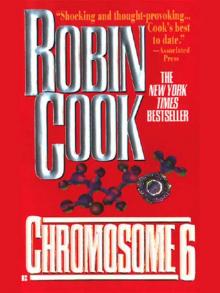 Chromosome 6
Chromosome 6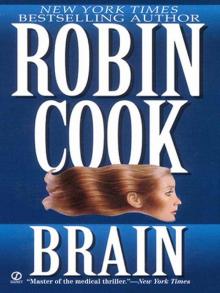 Brain
Brain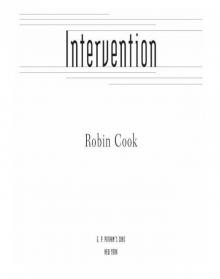 Intervention
Intervention Invasion
Invasion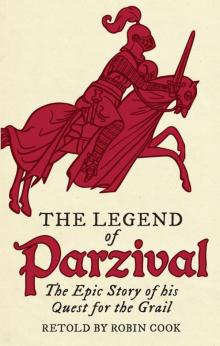 The Legend of Parzival: The Epic Story of His Quest for the Grail
The Legend of Parzival: The Epic Story of His Quest for the Grail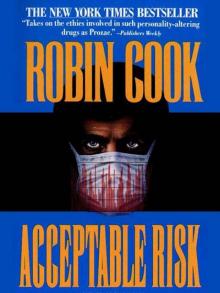 Acceptable Risk
Acceptable Risk Cell
Cell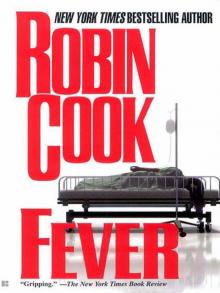 Fever
Fever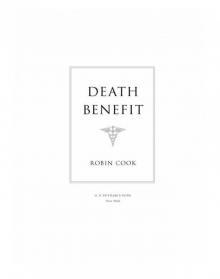 Death Benefit
Death Benefit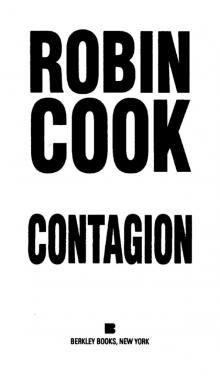 Contagion
Contagion Mindbend
Mindbend Coma
Coma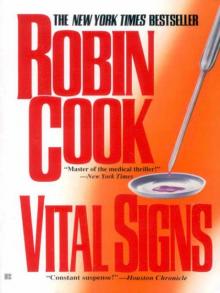 Vital Signs
Vital Signs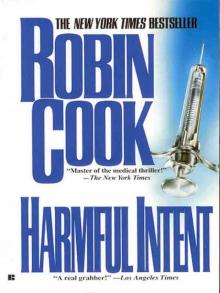 Harmful Intent
Harmful Intent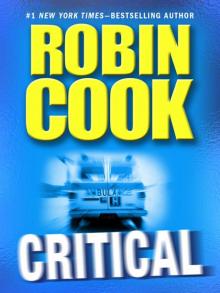 Critical
Critical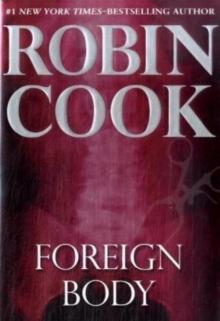 Foreign Body
Foreign Body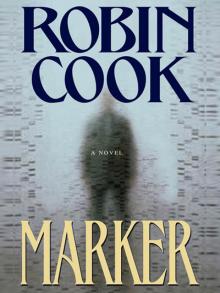 Marker
Marker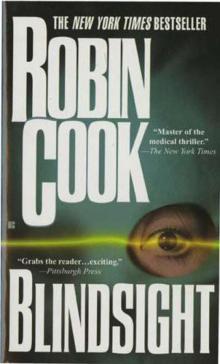 Blindsight
Blindsight Terminal
Terminal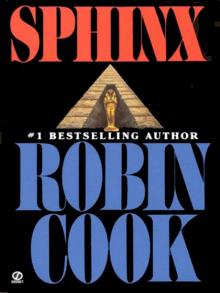 Sphinx
Sphinx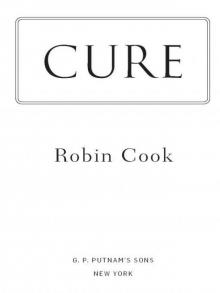 Fatal Cure
Fatal Cure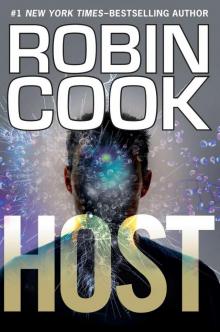 Host
Host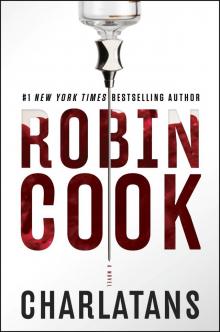 Charlatans
Charlatans Crisis
Crisis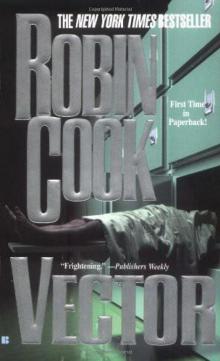 Vector
Vector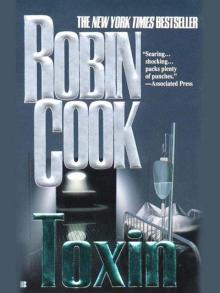 Toxin
Toxin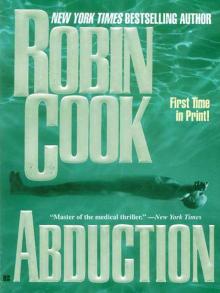 Abduction
Abduction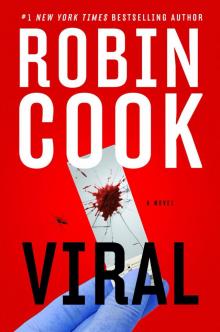 Viral
Viral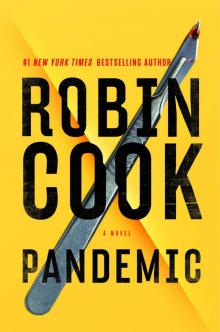 Pandemic
Pandemic Outbreak
Outbreak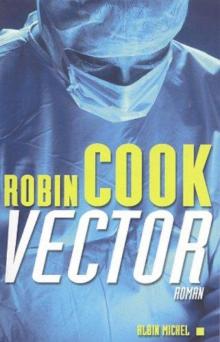 Vector js&lm-4
Vector js&lm-4 Godplayer
Godplayer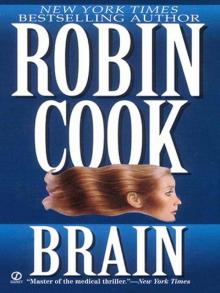 A Brain
A Brain Year of the Intern
Year of the Intern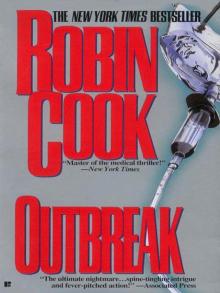 Outbreak dmb-1
Outbreak dmb-1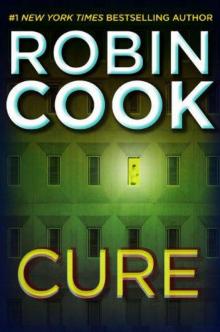 Cure
Cure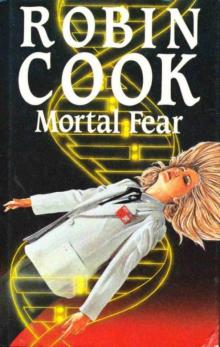 Mortal Fear
Mortal Fear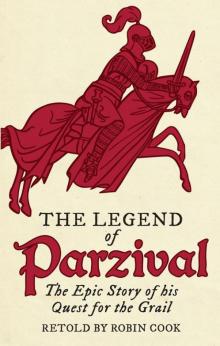 The Legend of Parzival
The Legend of Parzival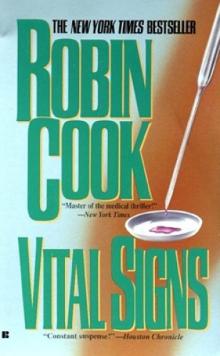 Vital Signs dmb-2
Vital Signs dmb-2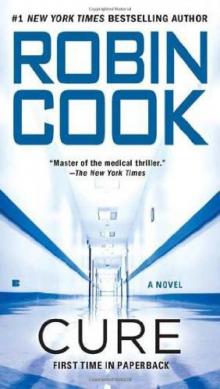 Cure (2010) sam-10
Cure (2010) sam-10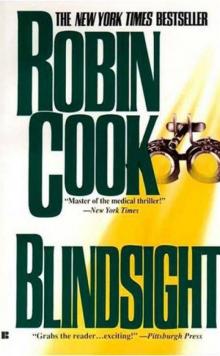 Blindsight sam-1
Blindsight sam-1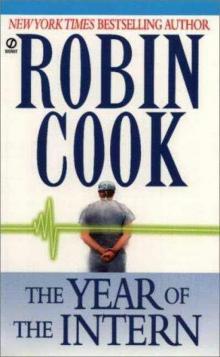 The Year of the Intern
The Year of the Intern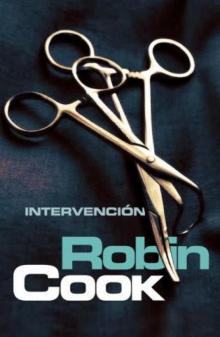 Intervention sam-9
Intervention sam-9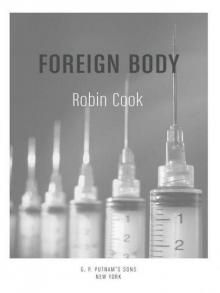 Foreign Body sam-8
Foreign Body sam-8